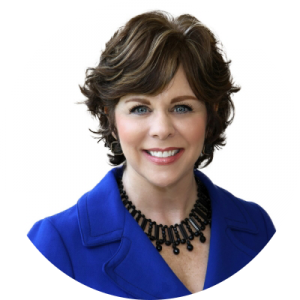The Persuasion Code: How Neuromarketing Can Help You.
About 17 years ago, a new branch of marketing called neuromarketing hit the sales world. It was an exciting idea that promised to change the foundation of marketing. Interviewed by John Golden, Patrick Renvoise discusses the impact that neuromarketing has made, and how it can be taken to the next level.
In this expert sales interview, these sales and marketing topics are covered:
- The difference between neuromarketing and traditional marketing
- What customers really want
- How to apply neuromarketing to your sales process
Traditional Marketing vs. Neuromarketing
Traditionally, a company will ask people what they want, and then based on their answers, the company will build a product and create a strategy to sell that product. This is an excellent idea in theory, but there is one key factor that makes traditional marketing ineffective: Customers do not always know what they want. Neuromarketing challenges this factor by finding other ways to understand the needs of consumers. At its infancy, neuromarketing promised to completely change the way that companies market by using physiological changes to decipher what people truly need.
Customers Don’t Know What They Want
Traditional marketing uses the idea that customers knew what they wanted. Everything was based on what the customers told companies. But, consumers don’t often understand what they want. This is in part because 90% of our brain is unconscious and is difficult to access. “We rarely have access to our unconscious needs, and asking people to access their unconscious by self-reporting is mission impossible,” said Renvoise.
However, the body does know what the customer wants. For example, when someone gets scared, the first signs of fear happen in the body. Even before they are consciously aware that they’re afraid, their body responds to that fear. Neuromarketing aims to capitalize on these physiological expressions to understand the actual needs of the consumer. For example, some of these techniques include measuring emotion based on muscle contraction, or how skin changes. These are all easy to do, inexpensive tests.
Neuromarketing Examples
Renvoise gives the example of the wildly popular pizza chain, Dominos. The company asked their consumers, “what do you want when it comes to pizza?” Most people surveyed mentioned the toppings, the taste, and other factors about the pizza. But what Dimons figured out is that what people really want is to know when the pizza is going to arrive. Furthermore, they were able to diagnose the consumer’s real, unconscious needs, and sell to that, versus what they reported they wanted.
Neuromarketing Promises
All of this new information about how consumers think and how they communicate is truly invaluable. However, the difficulties come into play when it comes to actually understanding what all of the different measurements mean. These measurements are easy to understand as measurements, but applying them to a marketing plan is where things have historically been difficult. But, there is good news! Renvoise has developed a unifying model of sales and marketing that explains how people use their brains to make buying decisions. Watch the video to understand these connections, and how to apply neuromarketing to your own sales process.
About Our Host
John is the Amazon bestselling author of Winning the Battle for Sales: Lessons on Closing Every Deal from the World’s Greatest Military Victories and Social Upheaval: How to Win at Social Selling. A globally acknowledged Sales & Marketing thought leader, speaker, and strategist. He is CSMO at Pipeliner CRM. In his spare time, John is an avid Martial Artist.




